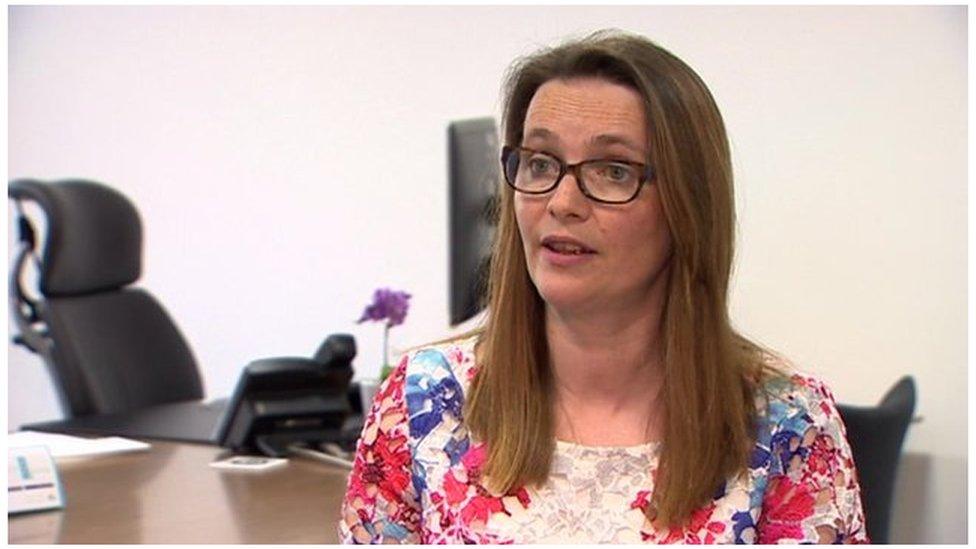Kirsty Williams announces £36m to cut infant class sizes
- Published
Kirsty Williams, on a visit to Burlais Primary School in Swansea, said it would make a real difference
A new £36m fund to reduce infant class sizes and raise standards has been announced by the education secretary.
Kirsty Williams said she had listened to parents and looked at international evidence.
"There is a positive connection between smaller classes and attainment, particularly for pupils from poorer backgrounds," she said.
The fund will target classes where learning needs to improve and where there are high levels of deprivation.
The money will be "directed at the frontline" and start with the largest class sizes over the next four years.
Latest figures showed that 7.6% (or 8,196) of infant pupils in Wales were in classes of over 30 - a growing number.
The average infant class size in Wales was 25.6 pupils.
Ms Williams said: "Our national mission is to raise standards and extend opportunities for all our young people.
"Time and time again parents and teachers tell me that they are concerned about class sizes."
Head teachers' union NAHT Cymru welcomed the announcement.
Director of policy Rob Williams said: "School leaders know that focusing support on our youngest pupils frequently reaps benefits later on in their education and beyond.
"It also makes sense to target such funding on those schools with children most in need of additional support - spreading funding too thinly may not have the maximum impact."
Infant class sizes cut 'means more quality time'
Cutting class sizes has been a long-held Liberal Democrat policy commitment and was a condition of an agreement with First Minister Carwyn Jones when Ms Williams - her party's sole remaining AM - joined the Labour cabinet last May.
But its effectiveness has been questioned by some education experts.
Conservative AM Darren Millar said the "scant evidence base" for the policy was "well documented".
"Conversely, there is growing evidence of Wales' worsening teacher recruitment crisis and so it remains unclear how this policy can be made to work," he added.
"Smaller class sizes mean more classrooms, which in turn demands more teachers - of which our country is in woefully short supply."
The money will be divided, with £20m going to capital funding, such as new school buildings and facilities, and £16m for revenue funding.
It will start with £7m for the next financial year rising to £11m for 2020/21.
Ms Williams said, when linked with other reforms, it would "create the space for teachers to teach and for pupils to learn".
- Published14 June 2016

- Published1 June 2016
